
rewrite this content and keep HTML tags 
Fresh from sharing her travels across Africa, Oscar-winning actress Lupita Nyong’o will head up the jury of this year’s Berlin Film Festival. Hundreds of films will be shown during the fest, which starts February 15, and carries on for ten days – with 20 films competing for the festival’s top awards, including the coveted Golden Bear. There have been notable African films appearing at the fest over the years, from the Nigerian immigration drama Eyimofe, to the Burkina Faso-set Sira, and this year brings with it a host of highly-anticipated titles from both newcomers and established filmmakers.
Among the most eagerly-awaited films debuting over the next few days include legendary director Abderrahmane Sissako’s Black Tea and Mati Diop’s Dahomey. Sissako’s 2014 film Timbuktu was nominated for an Oscar, and Diop won acclaim for becoming the first Black woman to compete at the Cannes Film Festival, with Atlantique, in 2019.
One newcomer who has opted to not take up the opportunity to show their film at the Berlin Film Festival, however, is Ghanaian director Ayo Tsalithaba. Tsalithaba’s film, Atmospheric Arrivals had been selected for the Forum Expanded section, but they withdrew it from the fest, citing Germany’s support for Israel amid that country’s military action in Gaza.
Here are ten films to keep an eye on that are playing in the various sections of the Berlin Film Festival this year:
‘À quand l’Afrique?’ / ‘Which Way Africa?’
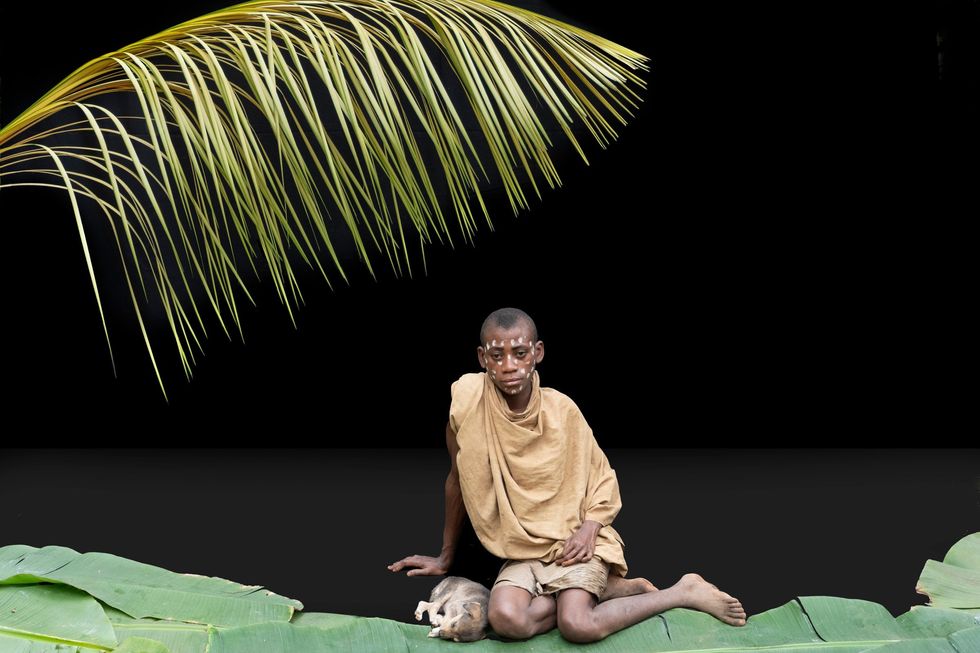
David-Pierre Fila is taking ‘À quand l’Afrique?’ to the Berlin Film Festival. Photo: David-Pierre Fila.
Brazzaville-born photographer and documentary filmmaker David-Pierre Fila enthusiastically documented on his social media the process he took to make his latest film, which included creating a crowd-funded campaign. The resulting À quand l’Afrique? is billed as a mix of “poetic images clash[ing] with harsh reality,” as Fila is set to examine the dualities of the continent. A fan of documentary, Fila has been known to use the genre to blur the line between rhyme and reason, and it’s expected he’ll do nothing less with this film, as he answers the ever-pertinent question of which way Africa is heading.
‘Mé el Aïn’ / ‘Who Do I Belong To’
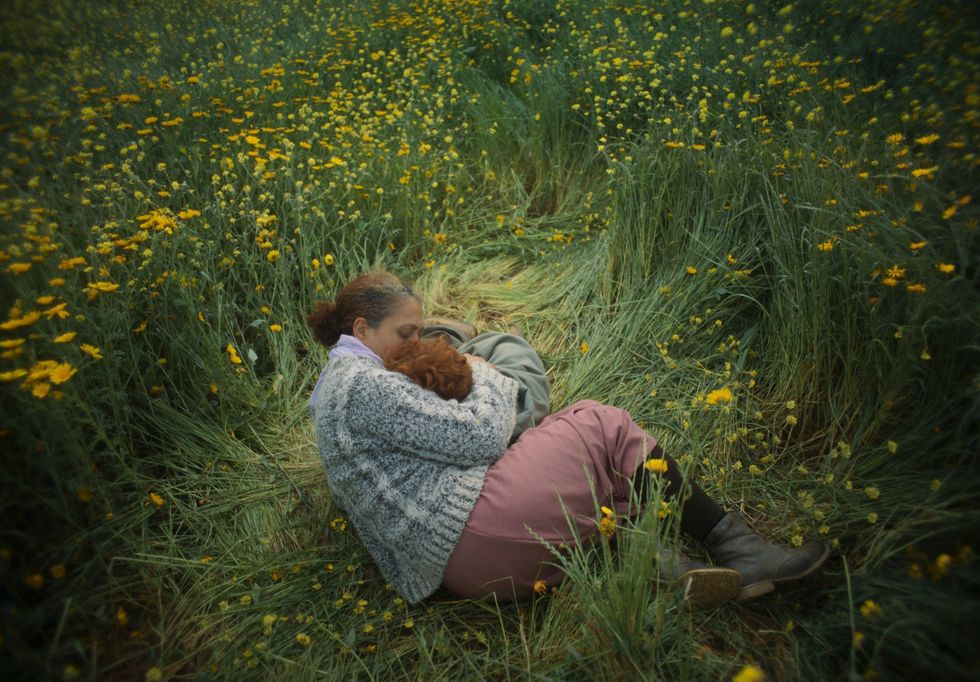
Meryam Joobeur’s Who Do I Belong To’ is debuting at the Berlin Film Festival. Photo: Tanit Films, Midi La Nuit, Instinct Bleu.
Tunisian-born filmmaker Meryam Joobeur will make her feature debut with this film, which is about a mother dealing with the return of her ISIS fighter son, who is one of two brothers. It’s a continuation of her 2020 Oscar-nominated short film, Brotherhood, which centered on the male characters. The film was born out of Joobeur, who spent her childhood in the U.S., wanting to know more about her homeland. Who Do I Belong To deals with the themes of motherhood and women’s perspective on war.
‘Dahomey’
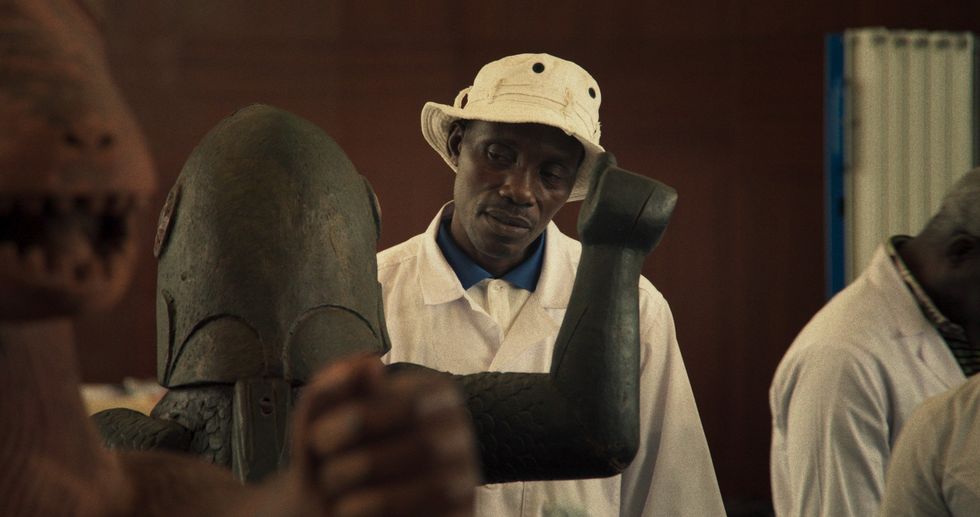
‘Dahomey’ is Mati Diop’s directorial followup to 2019’s ‘Atlantique.’Photo: Les Films du Bal – Fanta Sy
French Senegalese director Mati Diop has one of the two documentaries playing in the main competition line-up. Diop’s film, titled Dahomey, is about the hot-button topic of restitution, specifically 26 of the royal treasures of the Kingdom of Dahomey that were returned to Benin in 2021. Through the film, Diop explores the issue of colonization through the stolen works.
‘Tongo Saa’ / ‘Rising Up at Night’
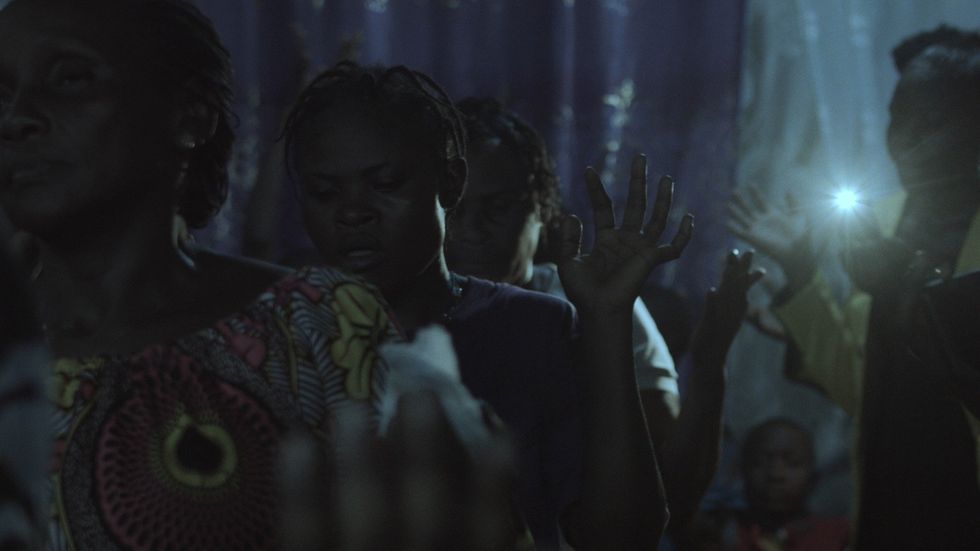
‘Tongo Saa’ / ‘Rising Up at Night’ is playing in the Panorama section of the Berlin Film Festival. Photo: Nelson Makengo
Congolese director Nelson Makengo’s first feature doc is a continuation of his award-winning 2019 short, Up At Night. The film is about showing Kinshasa – where Makengo lives and works – and its inhabitants as they struggle to get access to light when they are plunged into darkness, just before Christmas. As timely as ever, the doc speaks to the challenges the country’s citizens face in an environment full of violence.
‘As noites ainda cheiram á pôlvora’ / ‘The Nights Still Smell of Gunpowder’
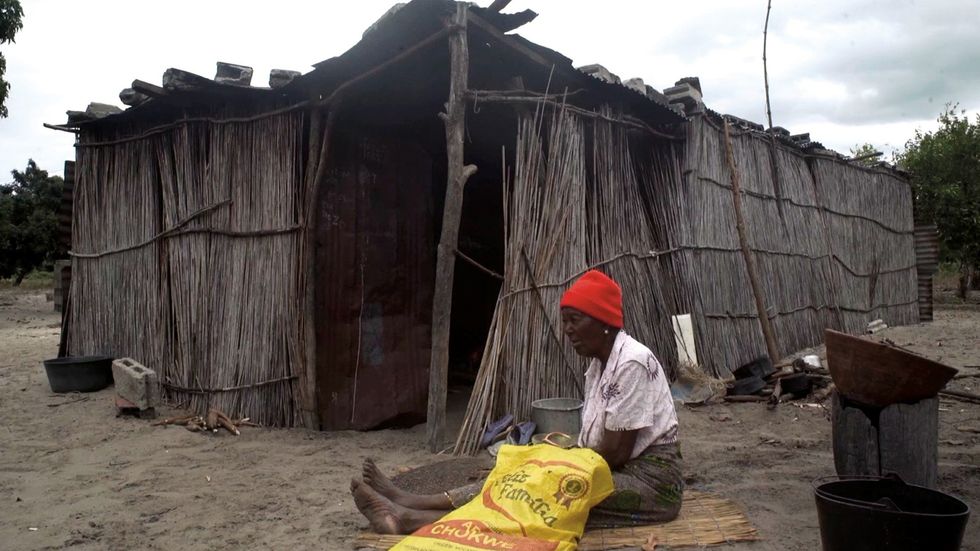
A Photo: Inadelso Cossa
Mozambican filmmaker Inadelso Cossa covers a subject that’s not too often seen on film, looking into the country’s civil war history, which took place from 1977 to 1992.
In it, Cossa visits his grandmother’s village where both victim and perpetrator live, and he begins to ask questions about the little-spoken about memories of that time.
‘Black Tea’
BLACK TEA – Trailer
www.youtube.com
Mauritanian-born Malian Abderrahmane Sissako makes a welcome return to the international film festival circuit with Black Tea. It’s been ten years since his last offering, the much-lauded Timbuktu. Sissako’s latest film shines a light on the African diaspora within Chinese culture as it follows Aya, a woman in her early 30s who leaves the Ivory Coast to start a new life in China.
‘Resonance Spiral’
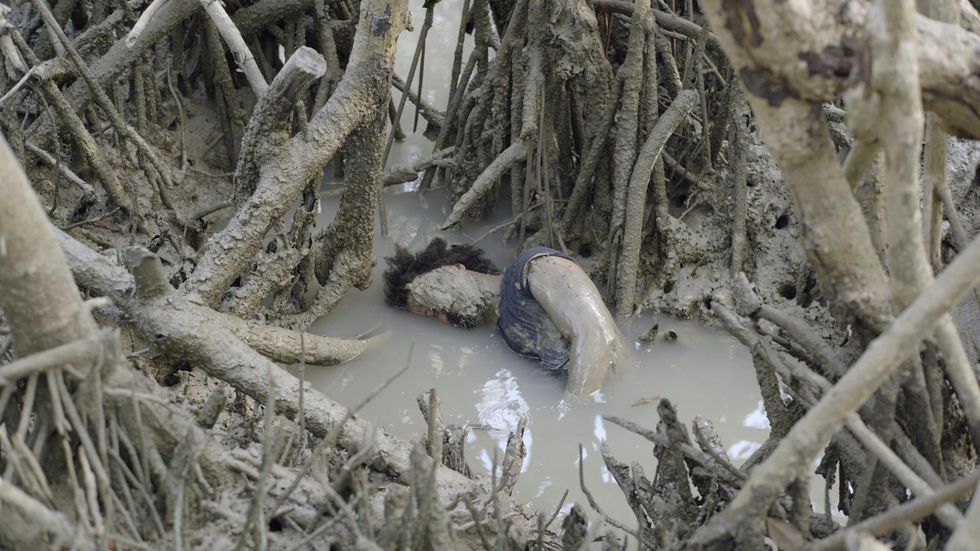
‘Resonance Spiral’ is a decade-long project made as a co-production between three countries. Photo: Jenny Lou Ziegel / Filipa César / Marinho de Pina.
A co-production between Guinea-Bissau, Portugal and Germany, this documentary, premiering in the Forum section of the fest, is concerned with reconstructing the audiovisual memory of Guinea-Bissau’s liberation movement. Resonance Spiral is centered on the Abotcha building in Malofo, a traditional Balanta village in the country, where the mobile art and culture platform known as Mediateca Onshore is based, and is intent on looking at the environmental and creative dialogue that has taken place there.
‘Disco Afrika: une histoire malgache’ / ‘Disco Afrika: A Malagasy Story’
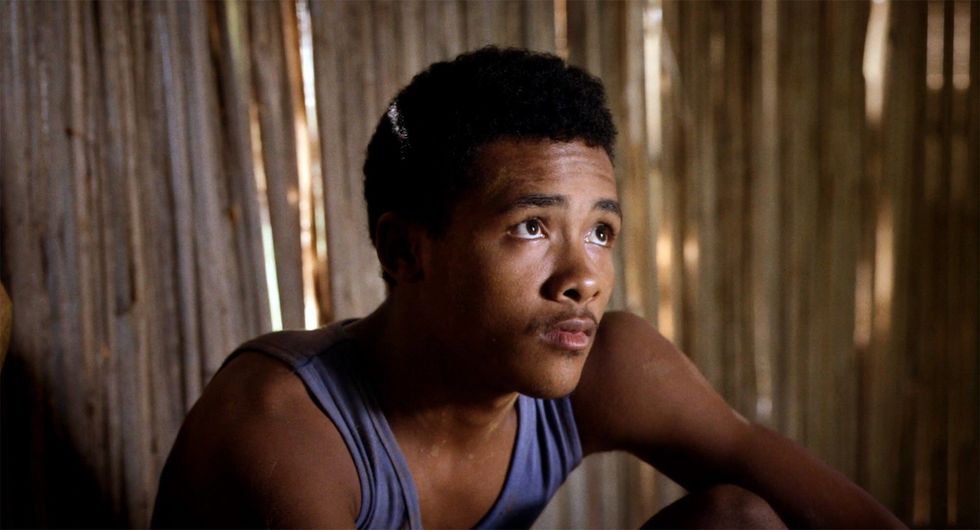
Luck Razanajaona is bringing his first feature, ‘Disco Afrika: une histoire malgache/Disco Afrika: A Malagasy Story’ to Berlin.Photo: We Film
Directed by Luck Razanajaona, who’s from Madagascar and studied at the Ecole Supérieure des Arts Visuels in Marrakech, Morocco, Disco Afrika: une histoire malgache/Disco Afrika: A Malagasy Story played at the Marrakech Film Festival late last year. Showing to a wider audience at the Berlin Film Festival will take the Malagasy filmmaker’s story further, as he tells the story of a young sapphire miner who goes back to his village looking for his identity. The film is Razanajaona’s first full-length feature.
‘Certain Winds from the South’
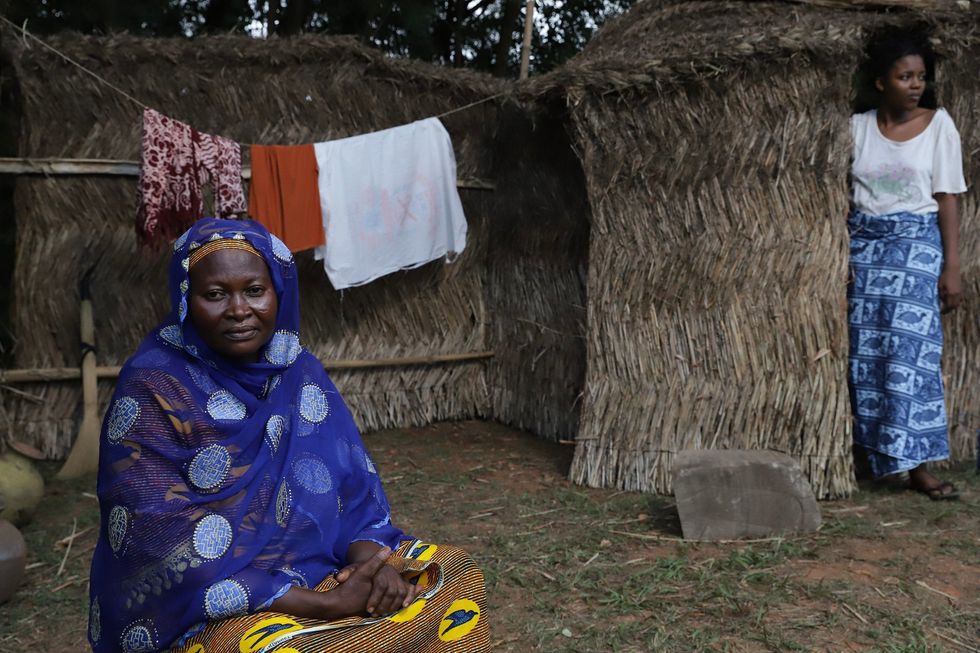
‘Certain Winds from the South’ is based on the short story by Ama Ata Aidoo. Photo: Nipah Denni.
Eric Gyamfi will present his film adaptation of the late Ghanaian author Ama Ata Aidoo’s short story of the same title. Showing in the Forum Expanded section of the fest, the short film follows the story in taking a critical look at Ghanaian society, post-independence.
‘Pepe’
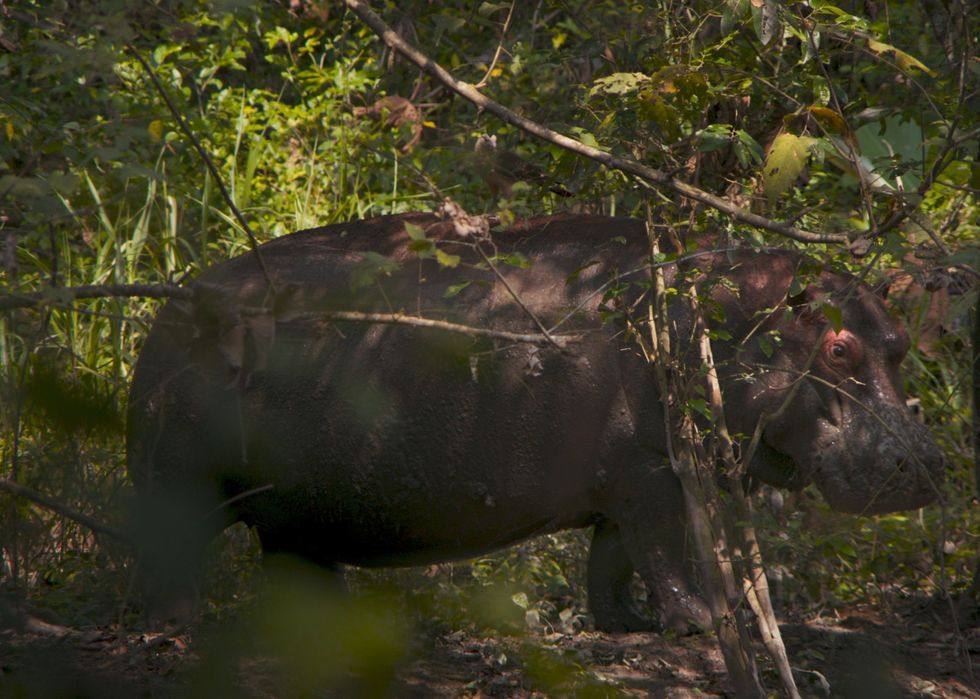
‘Pepe’ crosses borders as it tells the story of the African hippo that became part of Pablo Escobar’s zoo. Photo: Monte & Culebra
Described by the festival directors as the most “unclassifiable” film in the selection, Pepe, made by Dominican filmmaker Nelson Carlo de los Santos Arias, sounds like quite the concept. It’s narrated by the ghost of a hippo who was taken from Africa to Colombia to be kept as part of drug kingpin Pablo Escobar’s menagerie.











